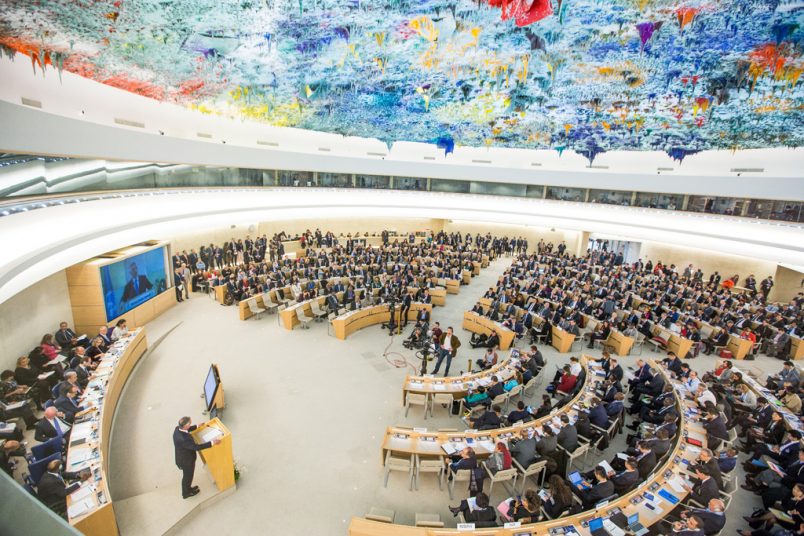Spain’s human rights performance was reviewed by the United Nation’s Universal Periodic Review on Wednesday (22nd January), with 15 States calling on Spain to guarantee the right to freedom of expression and protest in what the Catalan Foreign Minister has called a “most severe blow”.
A day after civil society organizations, including ELEN and Omnium Cultural, condemned “the regression of the right to the freedom of expression and assembly”. Switzerland, Italy, Belgium, Cyprus, the Czech Republic, Iceland, and Germany all expressed concern over the “restrictions” to these rights, with the Berlin delegation also noting Spain’s “generous interpretation” of the concept of national security in its legislation.
Belgium, Canada, and Switzerland urged Spain to reform its criminal code to safeguard the above mentioned rights, while Italy asked it to pass additional measures to guarantee them and to improve investigations into the police’s use of force.
Furthermore, the United States denounced the crimes against journalists and the attacks on the freedom of expression that have taken place. Canada said it should repeal legislation establishing the defamation of the crown as a crime.
Venezuela called for “the new Spanish Government to initiate a constructive dialogue with the Catalan people and their institutions.”
Catalan Foreign Minister Alfred Bosch stated that the UPR session “evidenced the most severe blow to the situation of human rights in the kingdom of Spain,” and urged the country to heed the recommendations made.
ELEN Secretary-General, Davyth Hicks said that, “Clearly many states share the same view as NGOs in that there have been clear human rights violations by Spain. We urge Spain to adopt the recommendations without delay and, in particular, to release the Catalan civic and political leaders as called for by the UN Working Group on Arbitrary Detention.”
According to the Spanish Government’s representative, Fernando Valenzuela Marzo, “the amount of citizen freedom, freedom of demonstration and of expression in Spain is amongst the highest according to international standards,” and claimed that the country had passed its human rights review with flying colours.
Numerous civil society organisations made submissions to the UPR including ELEN members Plataforma per la Llengua, Omnium Cultural and CIEMEN. Altogether there were 89 submissions made by NGOs compared to 27 in 2015.
ELEN submitted its report on systemic discrimination against co-official languages in its Report as well as submitting several written statements and recommendations over the violations of human rights in Catalonia before during and after the Catalan independence referendum.
ELEN Recommendations to HRC member states include:
That Spain immediately release Catalan civil and political leaders as called for by the United Nations Working Group on Arbitrary Detention;
Ensure that swift, independent and effective investigations are carried out into all allegations of police misconduct and disproportionate use of force during the referendum of Catalonia on October 2017, and in the peaceful protests against the Spanish Supreme Court sentence (14th October 2019) for Catalan civic and political leaders.
Urgently revise the definition of the crime of “sedition” in the Criminal Code to avoid criminalizing peaceful acts of civil disobedience or unduly restricting freedom of peaceful assembly or expression.
Promote the right to public participation through removing restrictions on the ability of duly elected Catalan politicians from taking up their seats in local, national and European institutions.
The recommendations from States to Spain will be reviewed and adopted at the June/July HRC with further written and oral statements being made regarding human rights violations in Spain at the next HRC in February. (Eurolang 2020)
ELEN Report to the UN UPR on Spain 2020 https://elen.ngo/wp-content/uploads/2019/09/UN-UPR-2020-ELEN-Report-on-Spain-1.pdf

